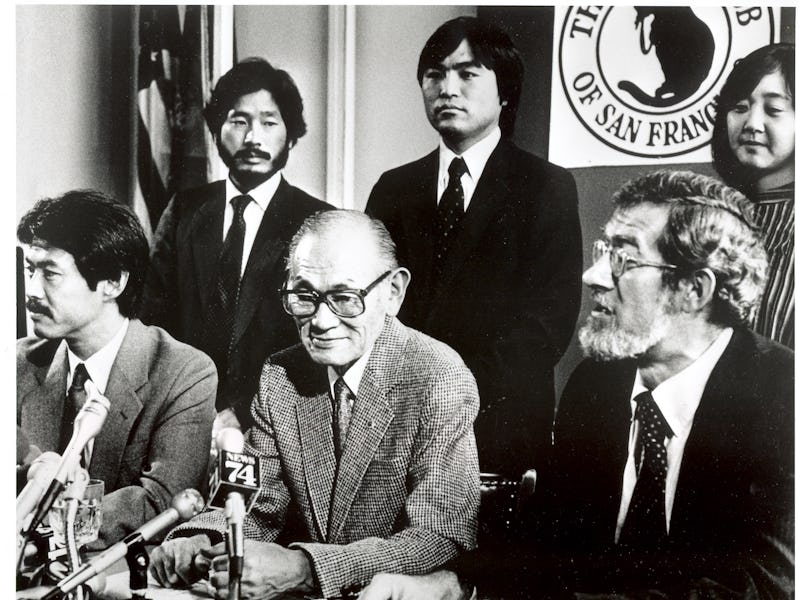Google Honors Civil Rights Activist Fred Korematsu With Doodle
His story has taken on new relevance.

Google rolled out a special doodle on Monday to honor civil rights activist Fred Korematsu, who passed away in 2005. Korematsu, whose birthday is also on Monday and would have been 98, became famous for refusing to be taken into the Japanese internment camps that were created in 1942 by an executive order of President Franklin D. Roosevelt.
That Google has chosen to honor Korematsu on this particular day is no small thing. In the wake of President Trump’s recent executive order halting travel from various Muslim countries, which has been lambasted by critics on all sides, Korematsu’s story seems freshly relevant.
Korematsu was subsequently arrested and, with the American Civil Liberties Union at his side, sued the U.S. government over the camps. Korematsu lost the case and was sent to a camp until the war ended. Despite the fact that the Supreme Court upheld the order, it is today viewed as an executive overreach and a shameful mark on the American history of civil liberties.
In 1988, President Reagan signed a bill that officially apologized to all Japanese Americans and provided $20,000 in compensation to every surviving victim of the camps. Korematsu was one such victim, and has since lent his name to the Korematsu Institute, which exists to educate about and prevent similar acts of injustice and human rights violations. Korematsu was also awarded the Medal of Freedom by Bill Clinton in 1998 for his continued activism in the area of civil liberties.
Korematsu is depicted wearing his Presidential Medal of Freedom.
Important to remember is the fact that the internment camps were created in response to a direct, full-scale military assault on the United States — from which followed several declarations of war — and, even then, they are still universally derided as heinous and immoral. By contrast, almost none of the recent terror plots against the U.S., and zero deadly attacks, have involved perpetrators from the countries targeted by Trump’s ban.
During the presidential campaign, a prominent Trump supporter also went so far as citing the Japanese internment camps as precedent for Trump’s proposed Muslim registry.
In the past, Google has showcased other prominent historical figures in its doodle. Back in 2010, the company paid homage to Rosa Parks on the 55th anniversary of refusing to give up her bus seat to a white passenger. Last year, a doodle was dedicated to Prince after the artist’s death, complete with purple rain.
In recognizing the life of Mr. Korematsu, Google is acknowledging that the legacy of these camps is far from gone. In doing so, the company has found its own way to fight push back against Trump’s travel ban.